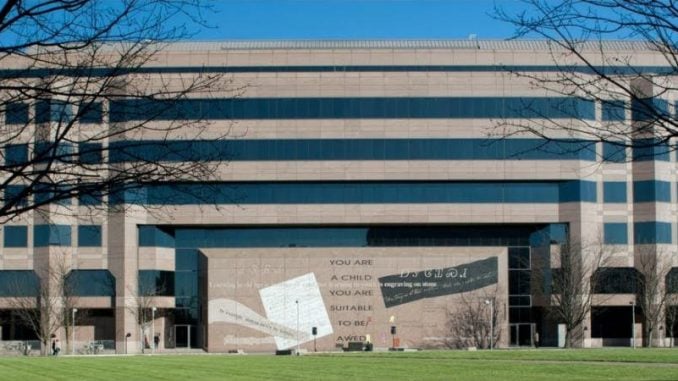

RALEIGH — Late on Sept. 19, Senate Leader Phil Berger (R-Eden) and House Speaker Tim Moore (R-Kings Mountain) held an impromptu press conference to announce a budget deal had been reached and three days later, the bill went to the governor. In a statement, Cooper said the budget would go into effect without his signature, which will be on Oct. 2.
The total spending in House Bill 259, “The 2023 Appropriations Act,” comes in at $29.8 billion in FY 2023-24 and $30.9 billion in FY 2024-25.
Education spending in the budget includes $17.3 billion in FY 2023-24 and $17.9 billion in FY 2024-25. The spending amounts each year are a 6.1% and 9.5% increase, respectively, over the spending in corresponding years of the previous budget.
School choice
School choice, a centerpiece of the budget’s education funding, includes the expansion of the popular Opportunity Scholarship Program to all students in the state.
Funding is based on a sliding scale of household income level with funding priority for the lowest-income families. All eligible students will get at least an amount of up to 45% of the average state per-pupil allocation for average daily membership in the prior fiscal year, which currently would be $3,458.
The Opportunity Scholarship Grant Fund Reserve was increased to expand the program to all students. Starting in 2025-26 and running through 2032, the annual funding more than doubles, increasing each year by $209 million.
Charter schools also see activity in the appropriations bill by addressing the recent policy move by the state Board of Education that could withhold funds from charter schools despite the Charter School Review Board (CSRB) being the authority on school approvals.
Per the bill, the state board “shall not withhold or reduce distribution of funds to a charter school for any reason” other than when there is a funding shift due to enrollment or general adjustments, if the CSRB notifies the board a school has violated a term of its charter, state statute or federal law, or if a charter school is terminated or nonrenewed.
Additionally, charter funding can be altered by the state board if the state superintendent finds the school has failed to meet fiscal management standards or has violated state or federal requirements for funding.
Parental rights
Under section 78.1(d), various parental rights as provided in Session Law 2023-106 (Senate Bill 49) are reiterated and codified, including the directive for school districts to comply with the law by Jan. 1, 2024, including giving parents a “parent guide to student achievement.”
In a statement on the social media platform X, State Superintendent Catherine Truitt thanked lawmakers for including the provisions.
“The Parents’ Bill of Rights is an essential piece of legislation that informs, empowers, and equips parents to advocate for their child’s academic, physical, emotional and overall well-being at school,” Truitt said. “From the beginning, I’ve supported the Parents’ Bill of Rights law, and I want it to be implemented successfully, and enacted fully.”
School Safety
There is $35 million in spending for school safety grants in both years of the budget. The grants can be used for school safety training, safety equipment in schools and subsidizing the School Resource Officer Grants program.
Teachers
The budget proposal includes a 7% raise for state employees over the two-year plan; 4% and 3%, respectively. The raises will be retroactive to July, the beginning of the state fiscal year.
For teachers and noncertified staff, the plan has an average raise of 7% for the two years. Starting teacher pay will rise to $41,000 in FY 2024-25, an 11% increase.
According to the Senate Republicans, the average teacher pay will increase to $60,671 by 2024-25, which “is on par with the state median household income.”
Under the Senate’s May budget proposal, raises for teachers came in at 4.5% over the two years, less than half of the House’s 7.5% two-year plan. Gov. Roy Cooper’s $67 billion budget plan had called for an 18% teacher raise. Top lawmakers called Cooper’s spending plan “reckless.”
An additional recurring appropriation of $30 million will be provided for the teacher supplement assistance program allotment. The total available for the state-funded allotment will now be $200 million annually.
The Advanced Teaching Roles program will be expanded and provided $10.9 million on a recurring basis for salary supplements for teachers serving in advanced roles. Salary supplements for advanced teaching roles include $10,000 for adult leadership teachers and $3,000 for classroom excellence teachers.
Pandemic recovery
Pandemic recovery needs continue in the current budget proposal, requiring the North Carolina Education Corps (NCEC) to report the results of the program to the Joint Legislative Education Oversight Committee by Feb. 15, 2024. NCEC was established during the 2021 legislative session to support students following the pandemic. The organization, which became a nonprofit in 2021, has received tens of millions in state and federal dollars.
A new Special Needs Pilot Program, including a contract with Amplio Learning Technologies for a special education digital intervention software platform, is included at $975,000. The pilot will be in schools in Alamance, Catawba and Nash counties for students with special needs.
Various allotments totaling $5 million in the remaining Elementary and Secondary School Emergency Relief (ESSER) federal funds are also included.



